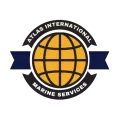U.S. and Philippine Coast Guards Conduct Maritime Cooperative Activity: Strengthening Ties and Enhancing Security

In a significant demonstration of international collaboration and commitment to maritime security, the U.S. Coast Guard and the Philippine Coast Guard have recently conducted a series of joint maritime cooperative activities.
This initiative not only underscores the strong partnership between the two nations but also addresses pressing challenges in the region, including illegal fishing, maritime safety, and environmental protection.
Background: A Long-standing Partnership
The United States and the Philippines share a robust history of cooperation, particularly in matters of defense and maritime security.
This partnership has been solidified through various agreements, including the Mutual Defense Treaty and the Enhanced Defense Cooperation Agreement.
With increasing geopolitical tensions in the South China Sea and surrounding waters, the need for enhanced maritime security has never been more critical.
Objectives of the Maritime Cooperative Activity
Enhancing Maritime Security
One of the primary objectives of these joint activities is to enhance maritime security in the region.
By working together, the U.S. and Philippine Coast Guards aim to deter illegal activities such as drug trafficking, human smuggling, and illegal fishing, which threaten not only the environment but also the livelihoods of local communities.
Improving Search and Rescue Operations
Another crucial aspect of the cooperative activity focuses on improving search and rescue (SAR) operations.
The joint exercises include training sessions aimed at enhancing the capabilities of both coast guards to respond effectively during emergencies at sea.
This collaboration ensures that both nations can better protect their citizens and respond to maritime disasters.
Environmental Protection and Sustainability
With the Philippines being home to some of the world’s most biodiverse marine ecosystems, environmental protection is a key priority.
The cooperative activity also emphasizes sustainable fishing practices and the protection of marine resources.
By sharing knowledge and resources, both coast guards aim to combat illegal fishing and promote environmental stewardship.

Key Activities and Exercises
Joint Patrols and Training
The cooperative activities include joint patrols in critical maritime areas, enabling both coast guards to share best practices and operational strategies.
Training exercises cover various scenarios, including anti-piracy operations, law enforcement at sea, and environmental protection measures.
Community Engagement
In addition to operational training, the joint activities have involved community engagement initiatives.
Both coast guards have worked with local fishermen and coastal communities to raise awareness about maritime laws, sustainable practices, and the importance of protecting marine resources.
This grassroots approach fosters trust and cooperation between the coast guards and local communities.
Response and Impact
The response to these maritime cooperative activities has been overwhelmingly positive, with both coast guards expressing enthusiasm for the collaboration.
Leaders from both nations have praised the partnership as a vital step toward enhancing security and stability in the region.
Building Capacity
By participating in joint exercises, the Philippine Coast Guard is building its operational capacity and gaining valuable experience from the U.S. Coast Guard’s expertise.
This capacity-building is essential, especially as the Philippines faces increasing challenges in monitoring its vast maritime territory.
Strengthening Regional Alliances
The successful execution of these cooperative activities sends a strong message to other nations in the region about the importance of collaborative security efforts.
It fosters a sense of solidarity among nations facing similar maritime challenges and reinforces the commitment to maintaining peace and stability in the Indo-Pacific.
Looking Ahead
As the U.S. and Philippine Coast Guards continue their maritime cooperative activities, the potential for future collaborations remains promising.
Ongoing dialogues and exercises will likely lead to more comprehensive strategies to address emerging maritime challenges.
Conclusion
The recent joint maritime cooperative activities between the U.S. and Philippine Coast Guards highlight the importance of international collaboration in ensuring maritime security and environmental protection.
By working together, both nations are not only strengthening their own capabilities but also reinforcing regional stability and fostering cooperation among neighboring countries.
As they move forward, these efforts will play a crucial role in addressing the myriad challenges facing the maritime domain and ensuring a secure and sustainable future for the region.
Found this article interesting, and useful? Please feel free to interact, recommend and share.
If you have any questions about this topic or would like to discuss your own business needs, please contact us today!


















